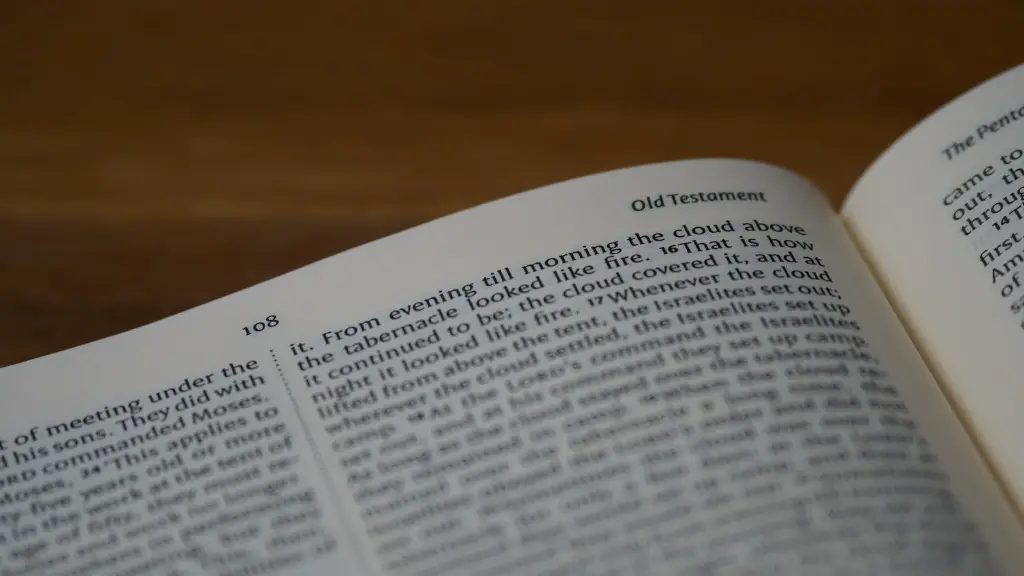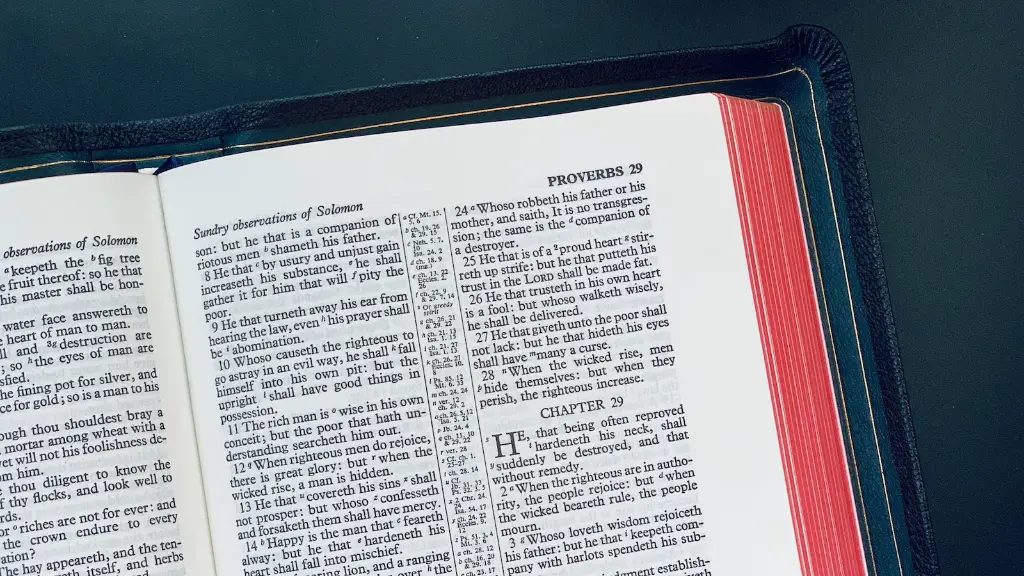Where Is The Bible Banned?
There are parts of the world where there are laws in place which makes it illegal to own or distribute copies of the Bible. Certain regime’s have made it their mission to prevent and prohibit the public from engaging in religious practises which are not in line with their specific cultural or political beliefs. In such countries, the Bible can be subject to censorship and it is not uncommon for church services, classes and prayer meetings to be shut down.
China and North Korea are known to be two of the main countries which have taken a firm stance against the religion of Christianity and the Bible and have been known to imprison those found to be evangelising, preaching or carrying copies of the holy book. In China, a large number of churches have been shut down, religious activities are heavily monitored and people can face harsh fines or lengthy imprisonment. In North Korea, Christians face execution, torture and camps if they are found openly practising their faith.
Muslims countries such as Iran and Afghanistan are also reported to be oppressive towards their Christian population, who reportedly face religious persecution and discrimination. Most non-Muslims are not allowed to build churches, mosques or visit holy sites for fear that this could upset the local population. Moreover, the Bible is banned from being taught in public schools or shared in any form.
In fact, the Bible has also traditionally been banned by some of the oldest and most influential communities, such as Judaism. Orthodox Jews staunchly oppose any changes to the Torah, which they believe was given to them by God, and rely on oral teaching that is passed down through generations to recognize any additional religious texts.
The Bible is an important religious text for the majority of the world’s 2.3 billion Christians and its banning in certain countries highlights the limits that exist for religious freedom in certain parts of the world. It also underscores the importance of ensuring that everyone has access to religious or spiritual resources that are meaningful and consoling to them.
Effects Of A Bible Ban
The banning of the Bible in certain countries has a noticeable effect on the religious freedom and beliefs of the people living there and, for many, it impinges on their ability to moral and spiritual fulfilment. Without access to the Bible, religious practice tends to be limited and stifled, and people are unable to grow and expand on their understanding of religion.
Moreover, a Bible ban can cause a disconnect between individuals and the Church, as they are unable to fully access the teaching and guidance of the Church. This disconnect can also lead to isolation, as individuals no longer feel part of the religious community, which in turn can lead to feelings of depression and loneliness. In some cases, it can even lead to an increase in social tensions as individuals become disillusioned with the restrictions placed on their religious freedoms.
Finally, the banning of the Bible can also lead to a decrease in religious knowledge and understanding. Without access to the Bible, individuals are unable to gain a deeper appreciation of scripture or be exposed to the teachings of the Bible. This can lead to a decrease in spiritual literacy, which in turns harms individuals and the community at large.
What Is Being Done To Reverse The Ban?
In order to lift the Bible bans in certain countries, human rights activists and organisations have taken action to stand up for persecuted Christians and ensure that their religious freedoms are respected. Activists are pushing for increased access to the Bible and other religious texts in countries where it has been outlawed, and they are hopeful that this will lead to an increase in religious freedom and understanding.
Organisations such as Open Doors are helping to educate people in countries where the Bible is banned, by providing more access to religious literature and encouraging people to read and understand the Bible. The organisation also works to advocate for religious tolerance and understanding, as well as providing support and resources to persecuted Christians.
Additionally, many churches, ministries and individuals are engaging in various types of Bible distribution in these countries, in order to ensure that individuals have access to this important book. Some of these initiatives are focused on providing copies of the Bible to those persecuted populations, while others are focused on distributing digital versions of the Bible in order to bypass any physical bans.
Bible Resources For People Suffering From Oppression
Despite being banned in some countries, there are still numerous resources available to persecuted individuals seeking access to the Bible. Bible sharing apps such as YouVersion and Scripture App Builder are available for download on smartphones, with both apps providing access to various translations of the Bible in multiple languages.
Furthermore, local and international churches are also working to provide support to people facing religious persecution, by offering free Bibles and Bible study materials in the language of the persecuted communities. These churches are also working to facilitate Bible literacy programmes, as well as providing spiritual guidance and pastoral counselling.
Finally, there are also various online resources available to those seeking access to the Bible, such as Bible Hub, which provides free access to scripture in various languages. Bible Gateway is another beneficial resource, as it provides searchable content in over 200 languages, making it easier for individuals to access scripture.
An Increase In Bible Use Despite Persecution
Despite the Bible being banned in certain countries, there has still been an increase in its use in those locations. There has been a rise in Christians who are not intimidated by the restriction and are determined to share their faith with others and pass it on to the next generation.
Modern technology has also played an important role in aiding persecuted populations in gaining access to the Bible. In addition to digital copies and apps, videos of Bible studies, inspiring stories and devotions have made their way to the remotest of places, opening up access to the scripture to even those who are unable to own physical copies of the Bible.
The banning of the Bible has also acted as an impetus for the Church to mobilise and come together in unified prayer and action in order to defend those facing religious persecution. Churches mobilise their communities through prayer and the provision of aid, resources and advocacy initiatives, with many churches serving as a haven for persecuted believers.
An Increase In Bible Smuggling Despite Persecution
Despite the banning of the Bible in certain countries, there has been a noticeable increase in the smuggling of Bibles into those locations. This is largely due to the efforts of underground ministries and organisations, who are determined to get the Bible into the hands of believers and those seeking spiritual truth.
These smugglers typically disguise their activities by posing as tourists or business people, or sometimes even by having the Bibles hidden within luggage and other packages. In some cases, Bibles are even printed in local dialects and distributed through trusted networks, in order to avoid detection.
The impact of Bible smuggling is significant and measurable, as it has allowed for the distribution of the Bible to those in locations where it has been heavily restricted. It also serves to communicate a message of hope and faith to those in need, which has the power to empower people both spiritually and emotionally.
Bible Distribution Despite Persecution
A number of organisations are working to get the Bible into the hands of persecuted believers, with some focusing on distributing physical copies and others focusing on providing digital copies. Bible Societies are one example of an organisation that has been providing millions of copies of the Bible to people living in countries where it is heavily restricted.
These organisations typically partner with local churches and ministries in order to safely deliver the Bibles and also provide additional resources such as Bible study materials and additional religious literature. They also seek to educate the public on how to live in accordance with their faith and encourage them to spread their faith with others boldy.
In addition to Bible Societies, there are also other initiatives and organisations working to provide access to scripture, such as the Bible App which provides free access to various translations of the Bible in over 1000 languages.
Conclusion
The banning of the Bible in certain countries has limited the spiritual and religious growth of those living within these locations, and it serves as an important reminder of the limits to religious freedom in certain areas of the world. However, there are those who are determined to defy the ban by smuggling Bibles and providing access to digital copies, thus enabling those within the countries to access scripture in a timely manner.





